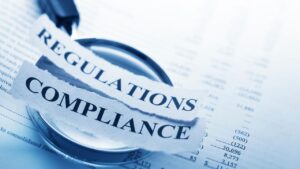In Singapore, a director’s role is a position with legal responsibilities defined by the Companies Act. Their duties are overseen by the Accounting and Corporate Regulatory Authority (ACRA).
Here’s a breakdown of the three main responsibilities of a Singapore company director:
A. What Does A Company Director Do?
1) The Strategic Role
The board of directors is responsible for the company’s big-picture strategy. They don’t manage the day-to-day operations (that’s a manager’s job), but they oversee the managers.
This includes:
- Managing risk by ensuring the company has proper controls in place.
- Setting the company’s vision and long-term goals.
- Appointing senior management (like the CEO) and holding them accountable for performance.
- Approving major decisions, such as large budgets, major acquisitions, or taking on significant loans.
2) The Compliance Role
This is a non-negotiable part of the job. A director is personally responsible for ensuring the company follows the law. If the company fails to do this, the director can be held liable.
Key compliance duties include:
- Filing with ACRA: Ensuring the company files its Annual Returns and financial statements on time.
- Keeping Records: Making sure the company maintains proper accounting records.
- Holding Meetings: Organising the Annual General Meeting (AGM) as required.
- Appointing Officers: Appointing a qualified Company Secretary (within 6 months of incorporation) and an auditor (unless the company is exempt).
3) The Legal Duties
Beyond the specific tasks, directors must follow a strict set of principles, often called “fiduciary duties.” This just means they must act in a position of trust.
- Rule 1: Act in the Company’s Best Interest. A director must always act honestly and make decisions they genuinely believe are best for the company, not for themselves, a friend, or even a single shareholder.
- Rule 2: Avoid Conflicts of Interest. A director cannot use their position to make a secret profit. If their personal interests clash with the company’s (e.g., the company wants to hire a contractor that is owned by the director’s spouse), they must declare it to the board.
- Rule 3: Use Reasonable Care and Skill. A director can’t just be a “sleeping director” or a name on a form. They must pay attention, understand the company’s business, and ask questions when making decisions. They are expected to be reasonably diligent.
B. Director Liabilities & Protections
The significant authority vested in a company director is matched by an equally significant level of personal responsibility.
The laws in Singapore holds directors to a high standard of conduct, and a failure to meet these obligations can lead to severe civil and criminal consequences.
- Civil Lawsuits: The company, its liquidators, or its shareholders can sue the director personally to recover any losses or profits made.
- Criminal Penalties: For serious breaches (like fraud or failing to act honestly), a director can face large fines and/or imprisonment.
- Administrative Penalties: ACRA can impose fines for late filings and other breaches.
- Disqualification: A director can be banned from being a director or managing any company in Singapore for a period of time.
i. Civil Liability
When a director breaches their duties, the primary party that suffers is the company itself. Therefore, the company has the right to take legal action against the director to seek remedies. These remedies can include :
- Damages: Seeking monetary compensation for losses the company suffered as a result of the breach.
- Recovery of Property: Forcing the director to return any company property that was misapplied.
- Accounting for Profits: Requiring the director to surrender any personal profits made from the breach of duty.
- Rescission of Contracts: Invalidating a contract that was entered into as a result of a director’s conflict of interest.
ii. Criminal Liability
Certain breaches of the Companies Act are considered criminal offenses and can result in prosecution by the state. Penalties can include substantial fines and, in serious cases, imprisonment. Examples include :
- Failing to act honestly and use reasonable diligence in the discharge of duties (fine up to S$5,000 or imprisonment up to 12 months).
- Failing to maintain proper accounting records (fine up to S$5,000 or imprisonment up to 12 months).
- Improperly paying dividends out of capital instead of profits.
- Making improper use of company information to gain a personal advantage.
iii. Personal Liability For Company Debts
This is the biggest fear for most directors. Normally, you are not personally liable for the company’s debts. A fundamental principle of corporate law is that a company is a separate legal entity from its directors and shareholders.
However, this protection is not absolute. The courts and specific statutes can in exceptional circumstances, hold directors personally liable.
Read our article on when is a company director liable for company debts to learn more.
Conclusion
Being a company director in Singapore is not just a fancy title; it’s a serious legal appointment. They are the ultimate decision-makers responsible for a company’s strategic direction and, most importantly, its compliance with the law.
Find out what is the criteria to be a Singapore company director.








